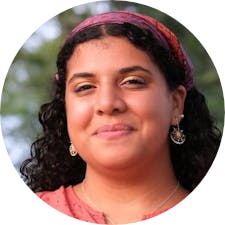As with pretty much every other aspect of life, Ramadan celebrations in the midst of the Covid-19 pandemic have changed significantly. In many cultures, Ramadan has typically been characterized by the unity of the “ummah” (community), as everyone bonds over shared experiences. In this holy month, people usually flock to the mosque to breakfast, pray together, and pay visits to various friends’ and family’s houses for “iftar” (the post-sunset meal). Many of my favorite Ramadan memories are of me joining a large table of strangers in various community spaces and leaving as friends by the end of the iftar. I have reminisced about this with my mom and brother multiple times in the last few weeks, as lively conversations and laughter with friends and family over shared meals have been replaced by FaceTimes and Zoom calls.
Going into 2020, I had already braced myself for Ramadan to look different, because I thought I would be spending it at Middlebury. I knew that Middlebury had a Muslim Students Association (MSA), but I wasn’t really aware of any Ramadan events or celebrations that would be occurring on campus. I worried that fasting in a predominantly white institution in middle-of-nowhere Vermont would feel isolating. Discovering that Middlebury had scheduled the Class of 2020’s commencement for the same day as Eid confirmed my suspicions that as Muslims, our religious ceremonies and beliefs are systemically overlooked. So when we got the email that we would have to leave campus, I couldn’t help but feel grateful that at least I would be able to celebrate Ramadan in New York with my family. But after having conversations with a few upperclassmen about what Ramadan was like at Middlebury last year, I’ve begun to feel nostalgic for the experience that could have been.
Over a Zoom call, Saifa Hussain, the Muslim Chaplain at Midd, answered all my questions about what celebrating Ramadan would have been like at Middlebury. Both this year and last year, the Scott Center has worked with Dining Services to ensure that the MSA fridge is stocked with food and drinks so that students could eat “suhoor,” the pre-sunrise meal, and iftar outside of the restrictions of dining hall hours. In addition to that, the MSA hosted community iftar events, some of them with catered foods, others serving as a community potluck of sorts, with people getting together to cook different cultural dishes. These iftars were not just for Middlebury students, Saifa said. Rather, various faculty members and professors also joined a few of them. Jennifer Ortegren, an assistant professor of religion, even helped to co-organize an event with Youssef el-Berrichi, the Arabic TA, centered around the relationship between food and community.
This relationship, Saifa noted, is one of the key aspects of Ramadan. “For many of us, Ramadan is about cultural food and reconnecting with our culture. For children of immigrant parents, it’s about the cultural experience of coming together for festivities after a long day of fasting to enjoy their parents’ cooking,” she said. “And if you’re an international student and you’re in a place that’s not predominantly your culture, Ramadan is a way to maintain those ties with the culture of your homeland. For that to be limited in any way is hard.”
Because of this, Saifa takes trips to Burlington to stock up on cultural “comfort” foods for Muslim students at Middlebury, some of which include certain spices such as maggi and shito; fish such as tilapia, kenkey, and sardines; and vegetables like yam and plantains. Furthermore, she’s worked with Dining Services to ensure that halal meats are provided for students who wish to cook meals from home, especially given that most of the students on campus are from African backgrounds and a lot of the dining hall foods which are Arab and South Asian inspired do not resonate with their own cultural experiences. This year, the MSA is working to provide programs and services for students off-campus as well: each Saturday night they host a “halaqa” (class) over Zoom to discuss spiritual reminders and topics relevant to current events.
When asked about Ramadan and being Muslim in the context of the greater community at Middlebury, however, Saifa said that there’s still a lot of work to be done, but she’s hopeful. Throughout this year, the MSA worked with Hillel to organize a few interfaith events. Saifa had been in the process of working with Youssef and Rabbi Danielle to plan an event called Mimouna, which is a custom in Morocco in which Muslims make a meal for Jewish neighbors at the end of Passover to help them break the fast. While that event can no longer take place due to Covid-19, it is representative of communities at Middlebury coming together to celebrate and indicative of future events that could take place. “I believe that after difficulty comes ease,” Saifa said. “There will be a lot of beauty and growth that comes as a result of these difficult times, and I am hopeful that people will come back with renewed energy for community and coming together.”
I am also hopeful. To borrow Laurie Patton’s phrasing, I feel “cautiously optimistic” about celebrating Ramadan at Middlebury next year and bringing some of my family’s traditions to campus while also creating my own. I envision myself breaking fast on the always-long Ross line, sharing dates and “khoshaf” with non-Muslim friends, staying up studying in Wilson before eating suhoor in the MSA room, and praying and finding comfort in new spaces.
Daleelah Saleh is a member of the class of 2023.

Daleelah Saleh ’23 is an Opinions Editor.
She intends to pursue an International Global Studies major with a Global Gender Studies track.
Her coverage at The Campus has included contributions to arts and opinion. In addition to working at The Campus, she is a peer writing tutor at the CTLR and has been involved with WRMC, Verbal Onslaught, and Oratory Now.

